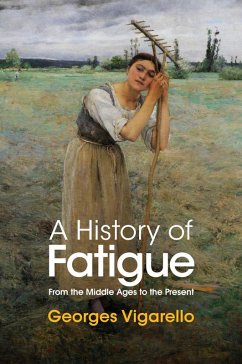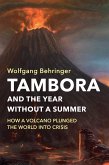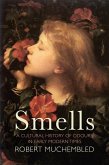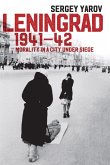"Stress," "burn out," "mental overload": the twentieth and twenty-first centuries have witnessed an unrelenting expansion of the meaning of fatigue. The tentacles of exhaustion insinuated themselves into every aspect of our lives, from the workplace to the home, from our relationships with friends and family to the most intimate aspects of our lives. All around us are the signs of a "burn-out society," a society in which fatigue has become the norm. How did this happen?
This pioneering book explores the rich and little-known history of fatigue from the Middle Ages to the present. Vigarello shows that our understanding of fatigue, the words used to describe it, and the symptoms and explanations of it have varied greatly over time, reflecting changing social mores and broader aspects of social and political life. He argues that the increased autonomy of people in Western societies (whether genuine or assumed), the positing of a more individualized self, and the ever expanding ideal of independence and freedom have constantly made it more difficult for us to withstand anything that constrains or limits us. This painful contradiction causes weariness as well as dissatisfaction. Fatigue spreads and becomes stronger, imperceptibly permeating everything, seeping into ordinary moments and unexpected places.
Ranging from the history of war, religion and work to the history of the body, the senses and intimacy, this history of fatigue shows how something that seems permanently centered in our bodies has, over the course of centuries, also been ingrained in our minds, in the end affecting the innermost aspects of the self.
Hinweis: Dieser Artikel kann nur an eine deutsche Lieferadresse ausgeliefert werden.
This pioneering book explores the rich and little-known history of fatigue from the Middle Ages to the present. Vigarello shows that our understanding of fatigue, the words used to describe it, and the symptoms and explanations of it have varied greatly over time, reflecting changing social mores and broader aspects of social and political life. He argues that the increased autonomy of people in Western societies (whether genuine or assumed), the positing of a more individualized self, and the ever expanding ideal of independence and freedom have constantly made it more difficult for us to withstand anything that constrains or limits us. This painful contradiction causes weariness as well as dissatisfaction. Fatigue spreads and becomes stronger, imperceptibly permeating everything, seeping into ordinary moments and unexpected places.
Ranging from the history of war, religion and work to the history of the body, the senses and intimacy, this history of fatigue shows how something that seems permanently centered in our bodies has, over the course of centuries, also been ingrained in our minds, in the end affecting the innermost aspects of the self.
Dieser Download kann aus rechtlichen Gründen nur mit Rechnungsadresse in D ausgeliefert werden.
Hinweis: Dieser Artikel kann nur an eine deutsche Lieferadresse ausgeliefert werden.
"Georges Vigarello is a pioneer in the history of the body with a gift for tracing the evolution of concepts over the long term. A History of Fatigue combines these talents to explore shifting understandings of fatigue from the Middle Ages right up to our present world of 'stress' and 'burn out', in the process making an original argument about the challenges and consequences of individual autonomy. Nancy Erber's lively translation preserves the engaging style that has made Vigarello so well known in his home country and will bring this important work to new audiences."
Robert Priest, Royal Holloway, University of London
"'Everything has a history, more complex than it seems.' Georges Vigarello shows this very clearly in a wide-ranging and well-organized book on a topic that might have been dismissed, before his research, as either unnecessary or impossible. A tour de force."
Peter Burke, Emmanuel College, University of Cambridge
"Georges Vigarello has an extraordinary talent for telling stories while simultaneously providing us with highly original, broad narratives about change over time. In this new book, he changes the way we think about the power of exhaustion in our lives, demonstrating that what makes us tired, nervous and stressed is also what makes us human."
Joanna Bourke, Birkbeck College, University of London
"In A History of Fatigue, the dean of 'intimate' histories of the body gives 'burn out' a place beside his earlier studies of hygiene, beauty and obesity. Weariness and stress are essential to the human condition, but the particulars matter: the exhaustion of the peasant, the ennui of the poet, the worn-out worries of the modern single mom. From the Middle Ages to the 'post-industrial' era, Vigarello illuminates the evolution of fatigue: how it is imagined, how it feels and how it is repaired."
Steve Zdatny, University of Vermont
"In Vigarello's account, fatigue has become something of a modern-day obsession--yet the more 'visibility' it has, the more it can add to our stress and existential discomfort. The corollary of the 21st-century ideal of the autonomous individual who 'performs' at a high level is the alienated, mentally and physically exhausted individual who can contribute nothing."
Prospect
"captivating... an important study of an increasingly important topic."
Times Literary Supplement
"'A History of Fatigue'... is stoutly industrious and inquisitive, and, in the corralling of evidence, Vigarello shows such dedication that he should seriously consider moonlighting as a homicide detective."
The New Yorker
Robert Priest, Royal Holloway, University of London
"'Everything has a history, more complex than it seems.' Georges Vigarello shows this very clearly in a wide-ranging and well-organized book on a topic that might have been dismissed, before his research, as either unnecessary or impossible. A tour de force."
Peter Burke, Emmanuel College, University of Cambridge
"Georges Vigarello has an extraordinary talent for telling stories while simultaneously providing us with highly original, broad narratives about change over time. In this new book, he changes the way we think about the power of exhaustion in our lives, demonstrating that what makes us tired, nervous and stressed is also what makes us human."
Joanna Bourke, Birkbeck College, University of London
"In A History of Fatigue, the dean of 'intimate' histories of the body gives 'burn out' a place beside his earlier studies of hygiene, beauty and obesity. Weariness and stress are essential to the human condition, but the particulars matter: the exhaustion of the peasant, the ennui of the poet, the worn-out worries of the modern single mom. From the Middle Ages to the 'post-industrial' era, Vigarello illuminates the evolution of fatigue: how it is imagined, how it feels and how it is repaired."
Steve Zdatny, University of Vermont
"In Vigarello's account, fatigue has become something of a modern-day obsession--yet the more 'visibility' it has, the more it can add to our stress and existential discomfort. The corollary of the 21st-century ideal of the autonomous individual who 'performs' at a high level is the alienated, mentally and physically exhausted individual who can contribute nothing."
Prospect
"captivating... an important study of an increasingly important topic."
Times Literary Supplement
"'A History of Fatigue'... is stoutly industrious and inquisitive, and, in the corralling of evidence, Vigarello shows such dedication that he should seriously consider moonlighting as a homicide detective."
The New Yorker









